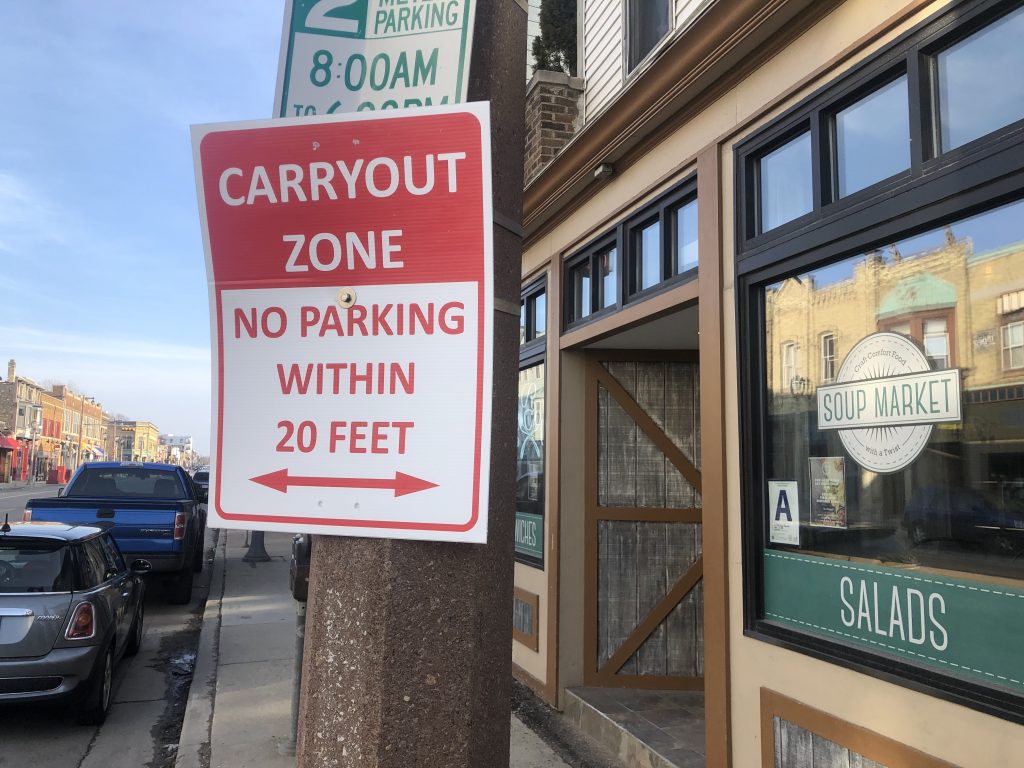Milwaukee’s Extended Indoor Dining Closure Reduced COVID-19 Spread
Study finds cities with extended closures saw 61% fewer COVID-19 cases.
The decision by Milwaukee Mayor Tom Barrett and then-Health Commissioner Jeanette Kowalik to maintain a prohibition on indoor dining, even after a state restriction was removed, significantly reduced the spread of COVID-19, according to a new study.
Milwaukee was one of four cities studied that chose to maintain its indoor dining restrictions even when wider state restrictions were lifted. Compared to seven big-city peers with indoor dining, the study found that new COVID-19 cases were reduced by 61%.
“Keeping indoor dining closed may be directly or indirectly associated with reductions in COVID-19 spread,” concludes the study. “Evidence of the relationship between indoor dining and COVID-19 case rates can inform policies to restrict indoor dining as a tailored strategy to reduce COVID-19 incidence.”
The authors of the study note that they deliberately sought to examine indoor dining, and not dining as a whole, because key sources of transmission are indoor, poorly-ventilated spaces. Other studies they reviewed did not examine the split between indoor and outdoor dining.
For each of the four studied cities that maintained dining closures, Milwaukee, Indianapolis, Philadelphia and San Francisco, a “time zero” was established when the city could have reopened. For each city, the study looked at the two weeks before time zero and the six weeks after.
“We estimate that, after adjusting for other non-pharmaceutical interventions, COVID-19 rates decreased by 61% over six weeks in cities that kept indoor dining closed compared to cities that reopened,” wrote the authors.
“Indoor dining has not only been associated with increased COVID-19 incidence, but also has been shown to potentially be responsible for some of the stark racial-ethnic COVID-19 disparities. Higher death rates in Black and Hispanic populations are driven by higher rates of infection and exposure, in large part thought to be due to higher rates of occupational exposure,” says the study. The authors suggest future studies of this with more detailed datasets.
The study authors acknowledge limitations with the available data. Some cities reopened indoor dining while maintaining restrictions on other activities, while others like Milwaukee maintained a prohibition on virtually all indoor activities.
The authors also noted that the treatment cities were smaller, have higher transit ridership and larger minority populations than the control cities. The seven control cities were Atlanta, Austin, Charleston, Dallas, Houston, Phoenix and San Antonio.
The study, as well as the underlying data sets and code to analyze it, is freely available online.
And while Milwaukee’s decision to allow bars and restaurants to reopen in June 2020 was a lifeline to a struggling industry, it wasn’t met with universal admiration by the businesses themselves. Many stayed closed, for various reasons, for weeks, if not months longer.
More about the Coronavirus Pandemic
- Governors Tony Evers, JB Pritzker, Tim Walz, and Gretchen Whitmer Issue a Joint Statement Concerning Reports that Donald Trump Gave Russian Dictator Putin American COVID-19 Supplies - Gov. Tony Evers - Oct 11th, 2024
- MHD Release: Milwaukee Health Department Launches COVID-19 Wastewater Testing Dashboard - City of Milwaukee Health Department - Jan 23rd, 2024
- Milwaukee County Announces New Policies Related to COVID-19 Pandemic - David Crowley - May 9th, 2023
- DHS Details End of Emergency COVID-19 Response - Wisconsin Department of Health Services - Apr 26th, 2023
- Milwaukee Health Department Announces Upcoming Changes to COVID-19 Services - City of Milwaukee Health Department - Mar 17th, 2023
- Fitzgerald Applauds Passage of COVID-19 Origin Act - U.S. Rep. Scott Fitzgerald - Mar 10th, 2023
- DHS Expands Free COVID-19 Testing Program - Wisconsin Department of Health Services - Feb 10th, 2023
- MKE County: COVID-19 Hospitalizations Rising - Graham Kilmer - Jan 16th, 2023
- Not Enough Getting Bivalent Booster Shots, State Health Officials Warn - Gaby Vinick - Dec 26th, 2022
- Nearly All Wisconsinites Age 6 Months and Older Now Eligible for Updated COVID-19 Vaccine - Wisconsin Department of Health Services - Dec 15th, 2022
Read more about Coronavirus Pandemic here























Researchers found that vaccination prevents one reinfection for every 275 patients who’ve received their shots.
*Let’s be fair, that’s pretty low risk to be concerned about. Glad to see it at the top of the article.